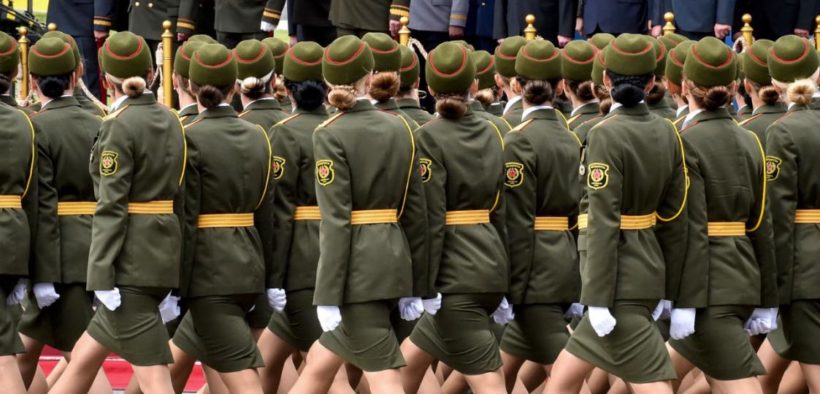Belarus Finds its Foreign Policy Stride

The ‘last dictatorship of Europe’ hedges carefully between East and West, like a hedgehog and a fox all at once
Until a few years ago, Belarus was a black spot on the political map of Europe. Despite its crucial geopolitical position at the crossroads of West and East, the country was generally dismissed as being, de facto, part of ‘Russia’s geopolitical backyard’ and therefore treated as unimportant in international strategic debates. Behind slogans about Slavic brotherhood, many analysts and decision-makers in Russia also expected Minsk to bandwagon with Moscow on all important international issues.
And yet geopolitical developments have revealed a Belarus, once called “the last dictatorship of Europe” by Condoleezza Rice – referring to the country’s human rights record, and by way of a demand for Belarus to become more democratic – that is quite different from these clichéd perceptions: small but highly realist, trying to use the little foreign policy marge de manœuvre that it has to preserve its sovereignty and contribute to regional security amid growing turbulence in Eastern Europe and the more general Russian-Western confrontation.
As geopolitical tensions rose in Eurasia in recent years, Belarus’s international behaviour began to surprise both Russia and the West. The first such surprise came with the Russo-Georgian war in 2008, when Minsk refused to recognize the independence of Abkhazia and South Ossetia. Any such recognition would have meant creating another problem in relations with the West. Moreover, recognition from Minsk would have suggested that the Belarusian government was fine with the idea of changing post-Soviet borders through force; evidently, it was not.
Another, more consequential surprise was Minsk’s reaction to the Russo-Ukrainian collision over Crimea and the Donbass. Again, contrary to popular expectations, Belarus did not pick a side in the conflict. Instead, it undertook and managed to preserve good relations with both Kiev and Moscow, offering its territory as a venue for the peace talks that issues in the Minsk-1 and Minsk-2 agreements. The Belarusian government also provided – on a permanent basis – its ‘good offices’ to the OSCE Trilateral Contact Group, which deals, at an operational level, with security, economic and humanitarian issues in war-torn Donbass.
At core, Belarus’s international behaviour is today driven by a firm logic – that of a small state trying to survive in the context of growing geopolitical uncertainties. Three factors are central to understanding this logic: geography, the general security situation in Eastern Europe, and the track record of Belarusian relations with the principal strategic actors in its region.
Geographically, Belarus is sandwiched between Russia and the EU (or the West). It is, as a result, constantly exposed to competing or contradictory geopolitical pressures originating from its much bigger neighbours. Of course, these competing pressures were recently amplified into open confrontation, threatening the strategic stability not only of Eastern Europe – with the bleeding wound in the Donbass continuing to stoke regional tensions – but indeed of Europe more generally, if not other continents.
These developments have clearly forced Belarus to think seriously about the foundations of its foreign and security policies. In the 1990s, Belarus famously declared that it would adhere to a multi-vectored policy. However, over the next quarter-century, only one vector – relations with Russia – really mattered on the ground. The two countries even created a union-state, which has until now been an unusual integration model, characterized by close cooperation in many areas, including in military affairs. And yet this model falls well short of any confederation or federation, and therefore does not materially limit the sovereign powers of each of the two states.
Belarus has also been an active participant in Russian-driven integration projects in the post-Soviet space – most notably the Collective Security Treaty Organization (CSTO) and the relatively new Eurasian Economic Union (EEU).
At the same time, Minsk’s relations with the West have, from the 1990s onward, generally been poor and bereft of energy. Indeed, Belarus is the only EU neighbour country with no overarching bilateral framework to govern its relations with Brussels (even though multiple smaller-scale agreements exist). In 1996, the parties signed the Partnership and Cooperation Agreement, which was not ratified on the EU side due to concerns about democracy and human rights in Belarus. Similar concerns about human rights have dominated Belarus’s relations with the US and Canada.
Why the multi-vector approach to foreign policy failed – or never took off in the first place – remains an important subject of debate in Belarus. To be clear, for this failure, the government and society of Belarus should primarily blame themselves. But more relevant to today’s debates in Belarus is what should be done to remedy this failure, and what such a remedy might mean for the future of Belarus and regional security in Eastern Europe.
Several years ago, the Belarusian government proclaimed emphatically that it was pursuing a ‘diversification’ course in its international affairs. This new course has yet to be conceptualized in formal state documents. But it is not, to be sure, a simple reorientation of Belarusian foreign policy à la Ukraine – that is, it is not a straightforward prioritization of relations with the West over everyone else.
For all practical intents and purposes, Belarus now pursues what is known in the academic literature as strategic hedging. The strategy has become increasingly popular among the small states in the Middle East and Southeast Asia, which similarly find themselves in geopolitical ‘in-between’ conditions. The more intense the strategic tensions between competing big powers, the greater the volatility felt by the small states caught in between. When this dynamic is combined with the manifest difficulties that small states have in their direct bilateral relations with each of these bigger states, the result is heightened uncertainty, with an almost prohibitively limited margin of error at play.
What, then, can a small state do? Like actors on financial markets, a small, ‘hedging’ state tends to pursue multiple policies at the same time, with a view to parrying the inevitable contradictions of such a complicated course. Consider Minsk’s handling of the Crimean question. On one hand, Belarus does not officially recognize Crimea as part of Russia. On the other, in international fora like the UN General Assembly, Belarus votes against Ukrainian-sponsored resolutions that accuse Russia of illegal annexation. Indeed, the working public formula of the Belarusian authorities is to state that Crimea is de jure part of Ukraine, but de facto part of Russia.
Russian Hedging
Belarus needs to preserve a good, multifaceted relationship with Russia, which is a massive political, economic and security reality at the country’s borders. There are manifest benefits to Belarus from such a positive bilateral relationship: discounted oil and gas prices, preferential access to the Russian market and Russian credit and, to be sure, the opportunity to enmesh Russia in binding institutional and legal commitments. Even when the Kremlin ignores some of these commitments – for instance, by restricting the access of Belarusian companies to the Russian market or by limiting, administratively, their competitive advantages – such enmeshing helps to make Russian behaviour more predictable.
Belarus evidently cannot go too far in its integration with Russia, as deep integration would invariably erode the small state’s sovereignty – given Russia’s scale
At the same time, Belarus evidently cannot go too far in its integration with Russia, as deep integration would invariably erode the small state’s sovereignty – given Russia’s scale. Tellingly, Minsk insists that the Eurasian Economic Union remain an economic project only, while objecting to any political integration within its framework.
Western Hedging
Minsk must significantly improve and diversify its relations with the West. Ideally, this should counterbalance the Russian vector – both economically and politically – in order to enhance Belarus’s freedom of action. And yet the legacy of the last 25 years is such that the Belarusian authorities have little trust in the West in general, and fear that the EU and the US in particular will continue efforts to implode the Lukashenko government. The authorities also fear that the West is interested only or ultimately in tearing Belarus away from Russia, which would certainly provoke Moscow (as it did in respect of Ukraine).
Regional Hedging
Belarus is most vulnerable to any worsening of the confrontation between Russia and the West – something that would before long force Minsk to side with the most natural party. Were this to happen, Belarus would automatically lose considerable economic rents, while seeing its sovereignty destroyed, at the margin, in the context of conflict. Minsk’s essential interest, then, is to avoid getting dragged into any such conflict at almost any cost. And this interest manifestly underpins Minsk’s recent forays into peacemaking – including through the provision of the said good offices in respect of the Ukraine conflict – as well as the launch of a major dialogue on regional and international security. Bref, Minsk has pursued situational neutrality in respect of both the Russo-Ukrainian and the Russo-Western confrontations.
Belarus also seeks to profit strategically and economically from third-country agendas that can relieve some of the binary divisions between Russia and the West in the region’s geopolitics. China’s Belt and Road Initiative is a case in point. Minsk is doing its utmost to become one of the BRI’s crucial elements in Eastern Europe, thereby raising its geostrategic significance for Beijing.
To this end, a huge Chinese-Belarusian industrial park has been opened on the outskirts of Minsk, with a view to getting Chinese strategic interests rooted in the country. Minsk has also intensified its relations with Beijing along other tracks, including in the military and military-industrial realms: a few years ago, China and Belarus jointly produced the powerful ‘Polonez’ multiple-launch rocket system.
Bref, over the next five years, Belarus must ensure that it becomes part and parcel of the mental (strategic) maps of both the West and Russia, and specifically as a principal stakeholder in Eastern European stability. Minsk must continue to explain internationally the benefits of a sovereign Belarus that is uninvolved in conflict. To the extent that Belarus can work to create conditions for better transparency and dialogue – beyond alliance politics – in Eastern Europe, it can help to minimize some of the security dilemmas inherent in the region’s present strategic dynamics.
Of course, in all this, the binary geopolitical pressures cannot but pre-program various internal fissures within Belarusian government and society at large. Even within the power vertical of Belarusian public administration, policy-makers must constantly reckon with these pressures and fissures in order to minimize the risk of internal explosion. The inevitable leadership succession problem that will befall the country, sooner or later, can only amplify this risk of explosion. Belarusian leaders and decision-makers will therefore need to do their homework to ensure that the country’s domestic institutions and its instruments of sovereignty are functional and resilient to be able to endure for the long run, parrying the various political and strategic pressures along the way.
Yauheni Preiherman is head of the Minsk Dialogue Track-2 Initiative.











